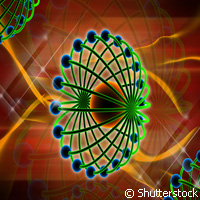German physicists clinch ERC Advanced Grants
Two researchers from the University of Stuttgart in Germany each received a EUR 2.4 million European Research Council (ERC) Advanced Grant for their groundbreaking work in physics. Professor Tilman Pfau, who heads up the 5th Physics Institute, was awarded for his research on the control of quantum correlations between long-range quantum gases. The 3rd Physics Institute's Professor Jörg Wrachtrup received the grant for the application of defect centres in diamonds in quantum technology. Experts say both research fields offer a lot of potential for data communication applications and for realising quantum computers with secure data transfers and high computing power. University of Stuttgart Rector Professor Wolfram Ressel pointed out that quantum physics has gained a strong foothold in the field of research at Stuttgart. 'We are very pleased that this expertise has been acknowledged by the ERC now even with two Advanced Grants,' Professor Ressel said. 'This has also a signalling effect with regard to our proposal in the Excellence Initiative by the German federal and states governments. It shows our excellent international standing in quantum physics - also in the cooperation with other research partners.' Professor Pfau clinched the ERC Advanced Investigator Grant for his research in LIQAD ('Long-range interacting quantum systems and devices'). The smallest unit of information is, in principal, a bit that can take the value of 0 or 1. These two values could also represent true or false, right or left. The information era is derived from the exchange and efficient processing of such information units. The maximum capacity limit of data processing is attained with the use of the smallest unit available in nature - a single quantum. New kinds of quantum components are supposed to send, receive, store and process quantum information carriers. So there is more potential for safe data transfer and quantum information processing. The approach taken by Professor Pfau and his team focuses on using atomic gases to transfer data; they are using efficient absorption to excite photons in atomic gases. Atoms in excited states interact with each other before the excitation; so the atom returns to a state with lower energy, and light in the form of a photon is emitted. The researchers say running the process in the purest possible form is key. The researchers place particular emphasis on using ultra cold clouds of atoms as well as micro vapour glass cells for room temperature applications. Professor Wrachtrup received his award for his work in SQTEC ('Spin quantum technologies - electron spin quantum technology'). He, along with his team, is using diamonds for their particular hardness and optical transparency. They will introduce atomic impurities into the diamonds. These atoms represent an ideal starting point for quantum technology. The ERC grant will allow Professor Wrachtrup and his team to carry out the technically demanding aspects of the process, such as inserting the impurities into the diamonds with nearly atomic precision. Their work will result in the creation of complex quantum states, making applications viable. For example, the defect centres in diamonds are excellent sensors for external magnetic fields, so they could be used to create nanoprobes capable of detecting magnetic fields in individual electron and nuclear spins with a spatial resolution of less than one nanometre. Physicists could then use this information to determine the structures of complex materials or molecules with unprecedented precision. What gave these researchers the edge in clinching the ERC grants? Their fruitful work been published in leading international publications, and they have succeeded in fuelling public interest. Commenting on the awards, Baden- Württemberg Science Minister Professor Peter Frankenberg says: 'The decision of the ERC is an honour and great success for the two scientists and the University of Stuttgart alike. The award is also an indicator on how well Baden-Württemberg is positioned in fundamental research. In this 3rd competition the ERC awarded altogether six scientists in Baden-Württemberg with an advanced grant.'For more information, please visit: University of Stuttgart:http://www.uni-stuttgart.de/index.en.htmlEuropean Research Council (ERC): http://erc.europa.eu/(opens in new window)
Countries
Germany



